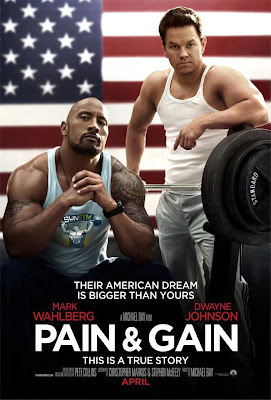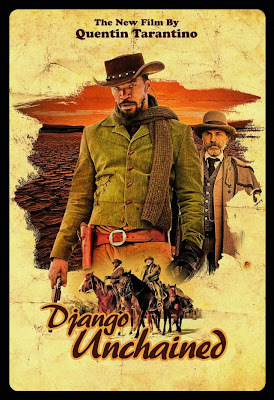Call Your Broker and Cautiously Proceed Onto Wall Street
Wall Street: Money Never Sleeps: 3 out of 5 Stars
As the film begins, Gordon Gekko (Douglas) is just leaving jail, after 8 years inside, weeks after 9/11. Cut to 2008, with financial markets teetering on the edge of doing things that people do not want to see happen, while Gekko is slowly getting back on the scene by releasing his book, titled "Is Greed Good?" Meanwhile, on Wall Street, Shia LaBeouf stars as our real hero, Jacob, an idealistic young trader (more clearly a good guy than Charlie Sheen was in the original) who is suddenly pushed into wanting to take revenge for the death of his mentor. Why you ask? Let me back up.
The company Jacob works for was run by Frank Langella's character, Louis Zabel. Zabel was a mentor figure for Jacob. Unfortunately for Zabel, the firm he ran was on the brink of ruins, leading to the greedy Josh Brolin character, Bretton James, and his own mentor figure Jules (Eli Wallach) to buy Zabel out very cheaply. This action, among other reasons involving this business, led Zabel to commit suicide. So Jacob now wants justice.
Factoring in to all of this of course is Gekko. Jacob also happens to be dating Gekko's estranged daughter Winnie, played by Carey Mulligan, and decides to look to Mr. Gekko in an effort to hopefully both patch up the relationship between father and daughter as well as find a way to get under Bretton James' skin and make him pay. Of course Gekko may have other plans of his own.
Oliver Stone's direction is certainly apparent throughout this film. From a technical standpoint, Stone, along with Scorsese among others, is very much known for the way he edits his films. He is also known for the ways in which he utilizes multiple types of cameras and filming techniques. Here the film feels quite slick in the way Stone uses his old fashioned split screens with rapid fire cityscape shots as a way to draw out stock market graphs on top of skyscrapers, as well as how he portrays the Wall Street of today with all the fancier technology that is in use (which is quite a trip after just watching the original again, days earlier).
The story is where one can pick things apart. I'm not going to lie by trying to flex the financial knowledge muscles that I just don't really have (although many in my audience seemed to be struggling at points), but I am aware of many of the points Stone tried to embed in the film about today's economic climate and I'll just leave it at that. What I can talk about is the way this film comes together. The use of the revenge plot line was really overdone. I understand why it is in place, but there is literally a scene where a ghostly image of Langella's character pops up next to Jacob's head to make sure we know what is "all part of the plan." The film could have also benefited from a little tightening up. I like seeing Wallach and also Susan Surandon popping up as Jacob's indebted mother, but the flow of the movie could have been better with less or even without these characters. However, this was all outmatched by the way too drawn out ending.
Still, Oliver Stone gets some very good performances out of his actors and the film doesn't feel like a sequel that just needlessly rehashes all of the same issues from the original. Instead, it functions to comment on today's financial world, bringing in some new players (while having two key cameos that I won't spoil), and works just well enough to get by. While not as quotable or fresh as the original, it still merits viewing.
Gordon Gekko: Someone reminded me I once said "Greed is good". Now it seems it's legal.Oliver Stone's follow up to his popular 1987 corporate classic, Wall Street, puts me in a tough spot. On one hand the film has comes at a well chosen time, in true Stone form, by being topical and making observations about the economic world of today. It also features some very good performances not just from the original film's Oscar winner, Michael Douglas, but from LaBeouf, Mulligan, Brolin, and Langella as well. On the other hand, the film is awkwardly long, with some unnecessary elements, a weak ending, and a very old fashioned revenge plot that was eye-roll inducing every time the film made sure to point it out to the audience. The film gets by just enough, and it's because the cast elevates it.
As the film begins, Gordon Gekko (Douglas) is just leaving jail, after 8 years inside, weeks after 9/11. Cut to 2008, with financial markets teetering on the edge of doing things that people do not want to see happen, while Gekko is slowly getting back on the scene by releasing his book, titled "Is Greed Good?" Meanwhile, on Wall Street, Shia LaBeouf stars as our real hero, Jacob, an idealistic young trader (more clearly a good guy than Charlie Sheen was in the original) who is suddenly pushed into wanting to take revenge for the death of his mentor. Why you ask? Let me back up.
The company Jacob works for was run by Frank Langella's character, Louis Zabel. Zabel was a mentor figure for Jacob. Unfortunately for Zabel, the firm he ran was on the brink of ruins, leading to the greedy Josh Brolin character, Bretton James, and his own mentor figure Jules (Eli Wallach) to buy Zabel out very cheaply. This action, among other reasons involving this business, led Zabel to commit suicide. So Jacob now wants justice.
Factoring in to all of this of course is Gekko. Jacob also happens to be dating Gekko's estranged daughter Winnie, played by Carey Mulligan, and decides to look to Mr. Gekko in an effort to hopefully both patch up the relationship between father and daughter as well as find a way to get under Bretton James' skin and make him pay. Of course Gekko may have other plans of his own.
Gordon Gekko: Why don't you start calling me Gordon?Again, the performances are truly the highlight of this film. I enjoyed the way Douglas' character was used. You have just enough of Gordon in the same way that the original used him. Certainly helping is not having Douglas just spout off one liners to remind the audience that this is that "same ol' wacky guy we love to hate," but instead a man who has somewhat reformed himself, dealt with issues from his past, and has a new take on the world. Also good is LaBeouf, who manages to make the idealistic thing work. I like LaBeouf as an actor ("no, no, no, no-ing" through Transformers aside) and I think he shows good range here. Brolin does solid work as well, functioning as a Gekko of the new millennium, as does Langella in the early scenes that he has. It's Mulligan who does the best work, next to Douglas, as she functions as a real character and not just the feminine shrew (like Darryl Hannah in the original).
Oliver Stone's direction is certainly apparent throughout this film. From a technical standpoint, Stone, along with Scorsese among others, is very much known for the way he edits his films. He is also known for the ways in which he utilizes multiple types of cameras and filming techniques. Here the film feels quite slick in the way Stone uses his old fashioned split screens with rapid fire cityscape shots as a way to draw out stock market graphs on top of skyscrapers, as well as how he portrays the Wall Street of today with all the fancier technology that is in use (which is quite a trip after just watching the original again, days earlier).
The story is where one can pick things apart. I'm not going to lie by trying to flex the financial knowledge muscles that I just don't really have (although many in my audience seemed to be struggling at points), but I am aware of many of the points Stone tried to embed in the film about today's economic climate and I'll just leave it at that. What I can talk about is the way this film comes together. The use of the revenge plot line was really overdone. I understand why it is in place, but there is literally a scene where a ghostly image of Langella's character pops up next to Jacob's head to make sure we know what is "all part of the plan." The film could have also benefited from a little tightening up. I like seeing Wallach and also Susan Surandon popping up as Jacob's indebted mother, but the flow of the movie could have been better with less or even without these characters. However, this was all outmatched by the way too drawn out ending.
Still, Oliver Stone gets some very good performances out of his actors and the film doesn't feel like a sequel that just needlessly rehashes all of the same issues from the original. Instead, it functions to comment on today's financial world, bringing in some new players (while having two key cameos that I won't spoil), and works just well enough to get by. While not as quotable or fresh as the original, it still merits viewing.
Gordon Gekko: Payback. Except I'm not in that business anymore - because the one thing I learned in jail is that money is not the prime asset in life. Time is.





Comments
Post a Comment